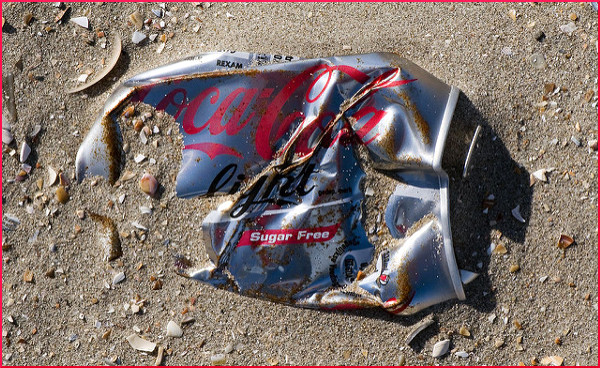
Whatever the soda industry is doing, it’s working. Kids in the United Kingdom (between ages 7 and 15) spend more money on fizzy drinks than they do on games, toys, and hobbies.
Coke formerly, and famously, contained cocaine. It has been said by snarky non-fans that cocaine was removed from the recipe not for legal or ethical reasons, but simply because it was redundant — the sugar high alone being potent enough to satisfy the customers.
The Coca-Cola Company stepped up with seeming eagerness to the challenge of reducing the amount of sugar in its beverages in Great Britain. There is one catch — it can’t change the flagship product, Coke. Other drinks can be reformulated, and thus escape the tax that went into effect earlier this year. But Coke is sacred, not to be tampered with, and therefore necessarily more expensive. Instead, the illusion of a stable price is achieved by making the bottles and cans smaller.
Now let’s hear from the corporation’s general manager in that part of the world, Jon Woods:
It has never been any secret that we don’t agree that the tax is necessary or that it will meet its policy goal of reducing childhood obesity… It’s a complicated problem and a soft-drinks tax on its own does not fix childhood obesity.
In refuting the proposal that “a soft-drinks tax on its own” will fix childhood obesity this executive employs a rhetorical device, as company spokespeople are wont to do. He sets up a straw man, just to knock down. It is highly unlikely that anyone, anywhere, ever claimed that a soft-drinks tax on its own can fix anything. And it is glaringly obvious that the government, professional organizations, and schools are all implementing various other measures in the attempt to reduce obesity.
Diet Coke is the biggest sugar-free brand in Ireland, where the company says that even before the sugar tax was proposed, marketing efforts were honed to concentrate on pushing drinks with low or no sugar, with quite effective results. Apparently the Irish are not familiar with an article by Caroline Sloan that enumerates the harms of each ingredient.
Briefly: Carbonated water can trigger Irritable Bowel Syndrome; citric acid can destroy tooth enamel; caffeine can make stomach acid. Caramel coloring might be carcinogenic, and so might aspartame, along with its proclivity for causing abdominal pain, headaches nausea, neurological problems, and seizures in some people.
Phosphoric acid has been known to cause diarrhea, stomach cramps, vomiting, and in the long term, osteoporosis. It also appears to contribute to the formation of kidney stones, which seems counter-intuitive because phosphoric acid is also the ingredient that removes rust.
Your responses and feedback are welcome!
Source: “Children spend more on soft drinks than games, toys,” ANINews.in, 02/16/18
Source: “Coca-Cola seeks sweet new revenues with fridge full of product launches,” IrishTimes.com, 03/08/18
Source: “Drink Diet Coke for Good Health? Not So Much,” Alloy.com, 06/23/10
Photo credit: maessive via Visualhunt/CC BY-ND

 FAQs and Media Requests:
FAQs and Media Requests: 











